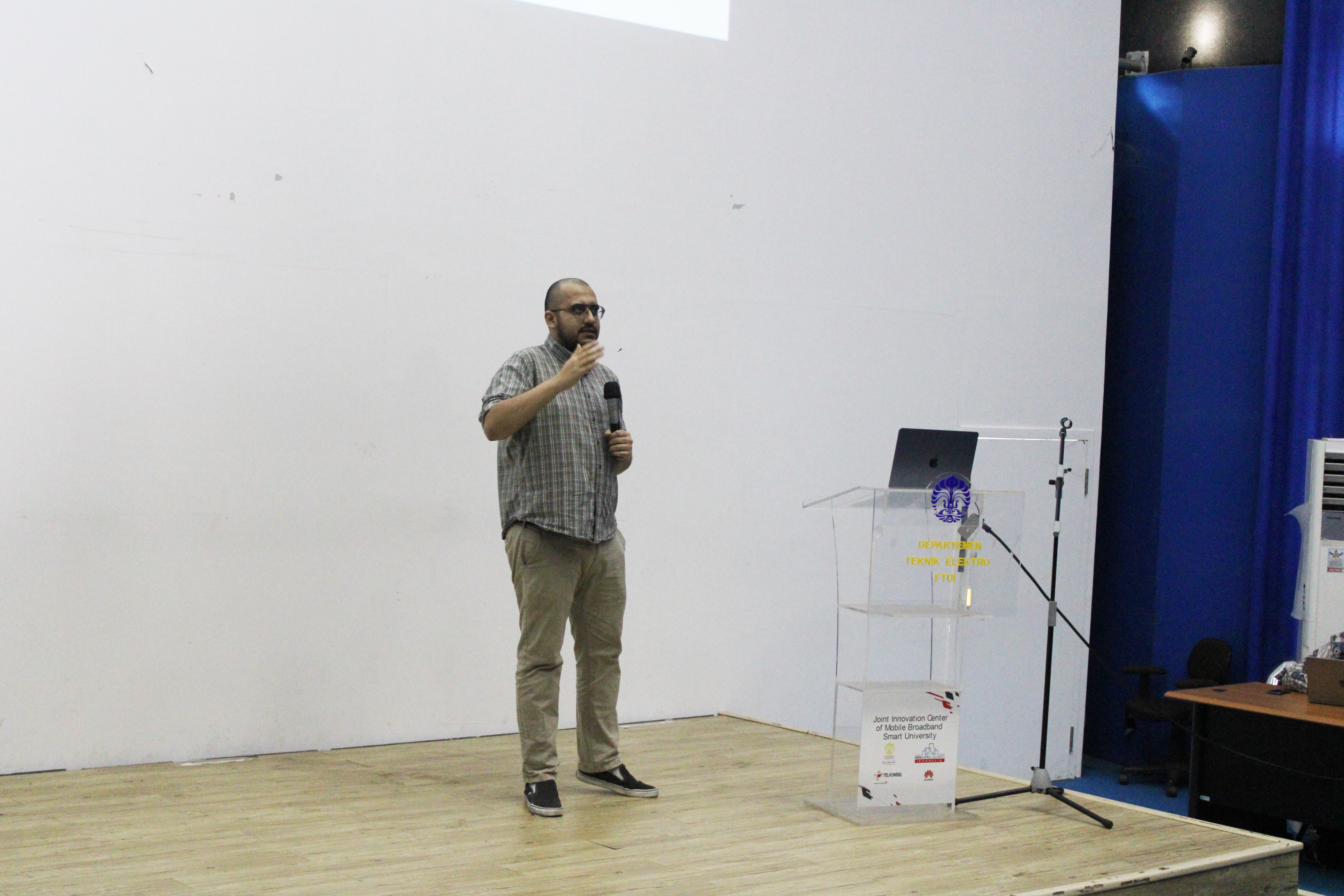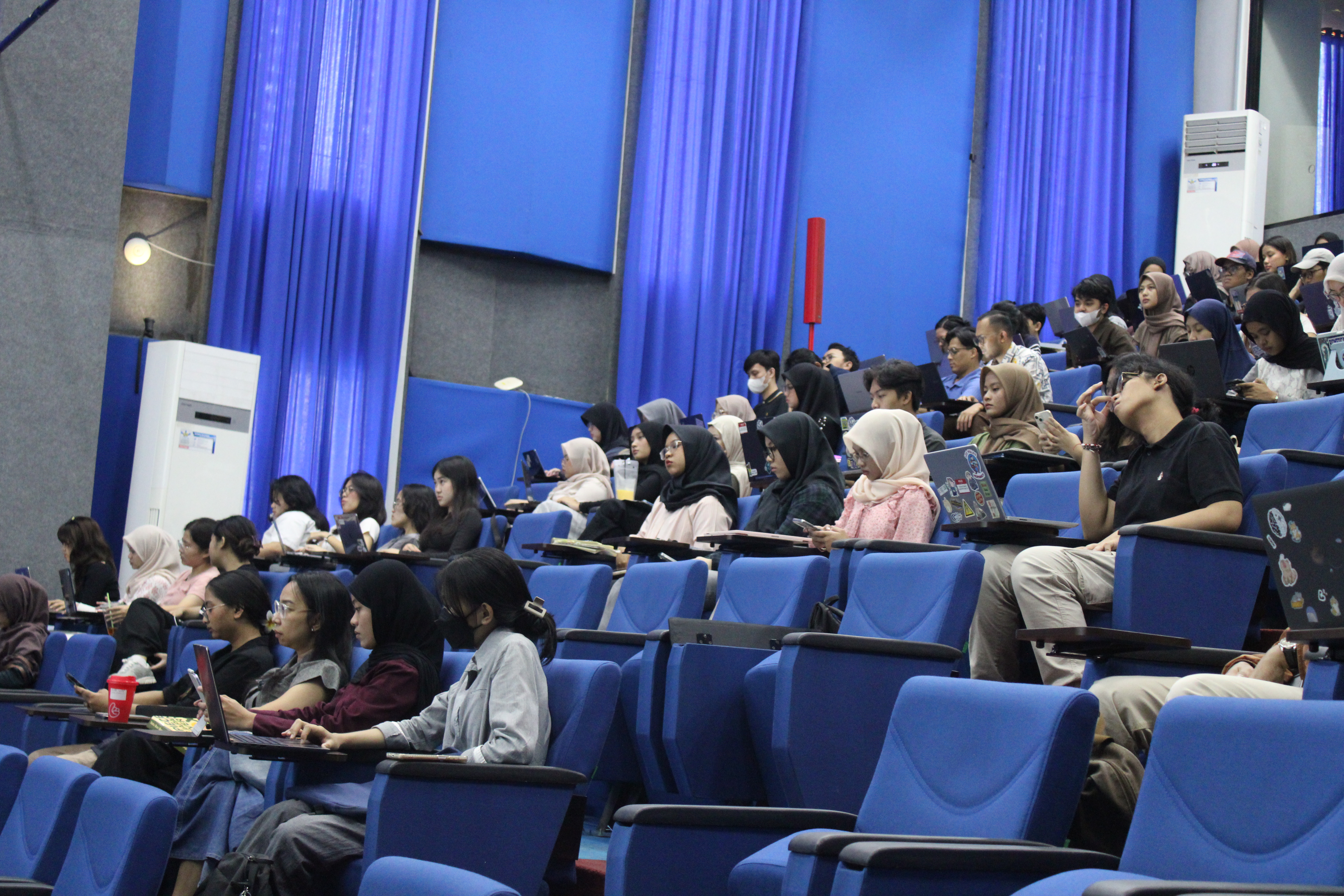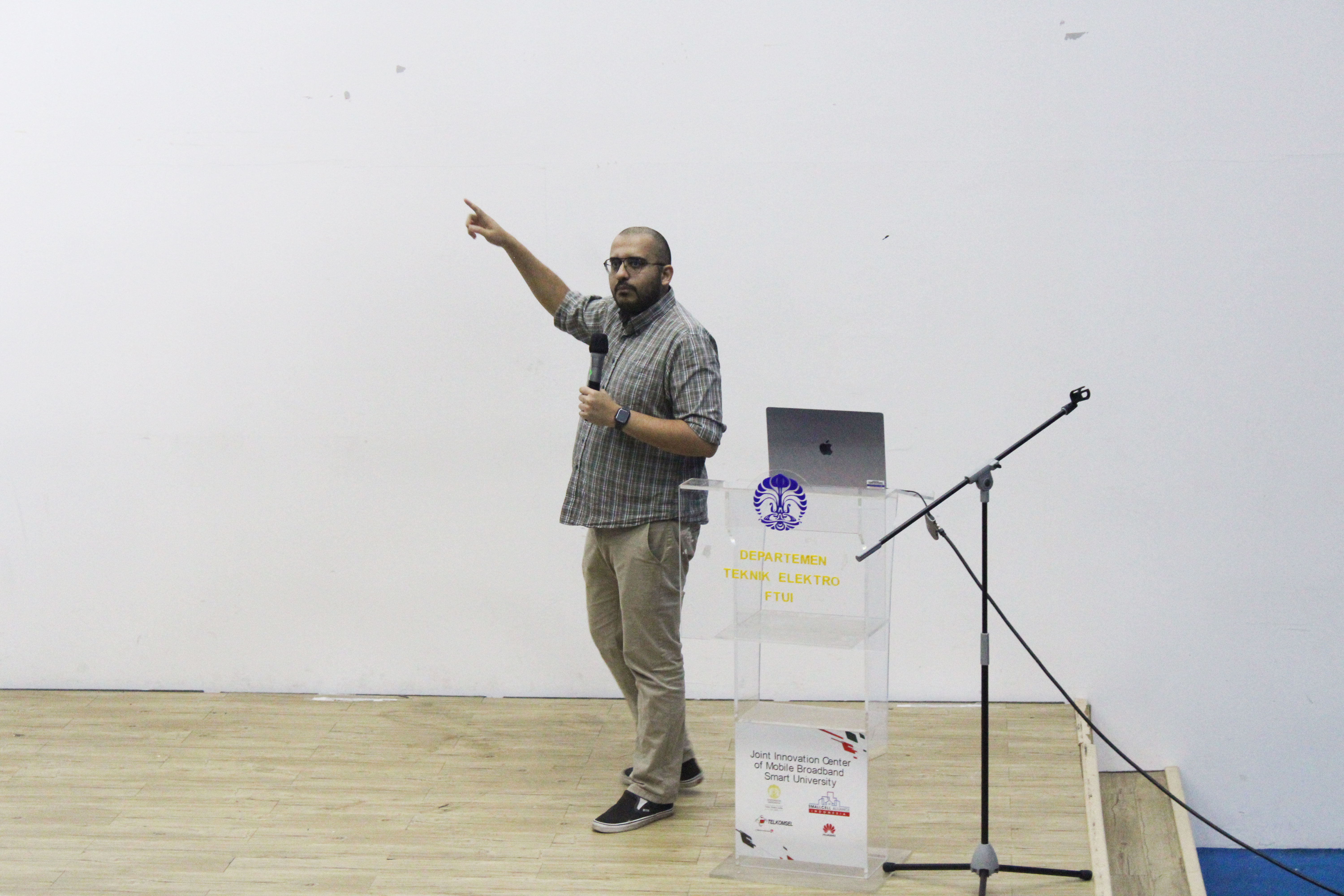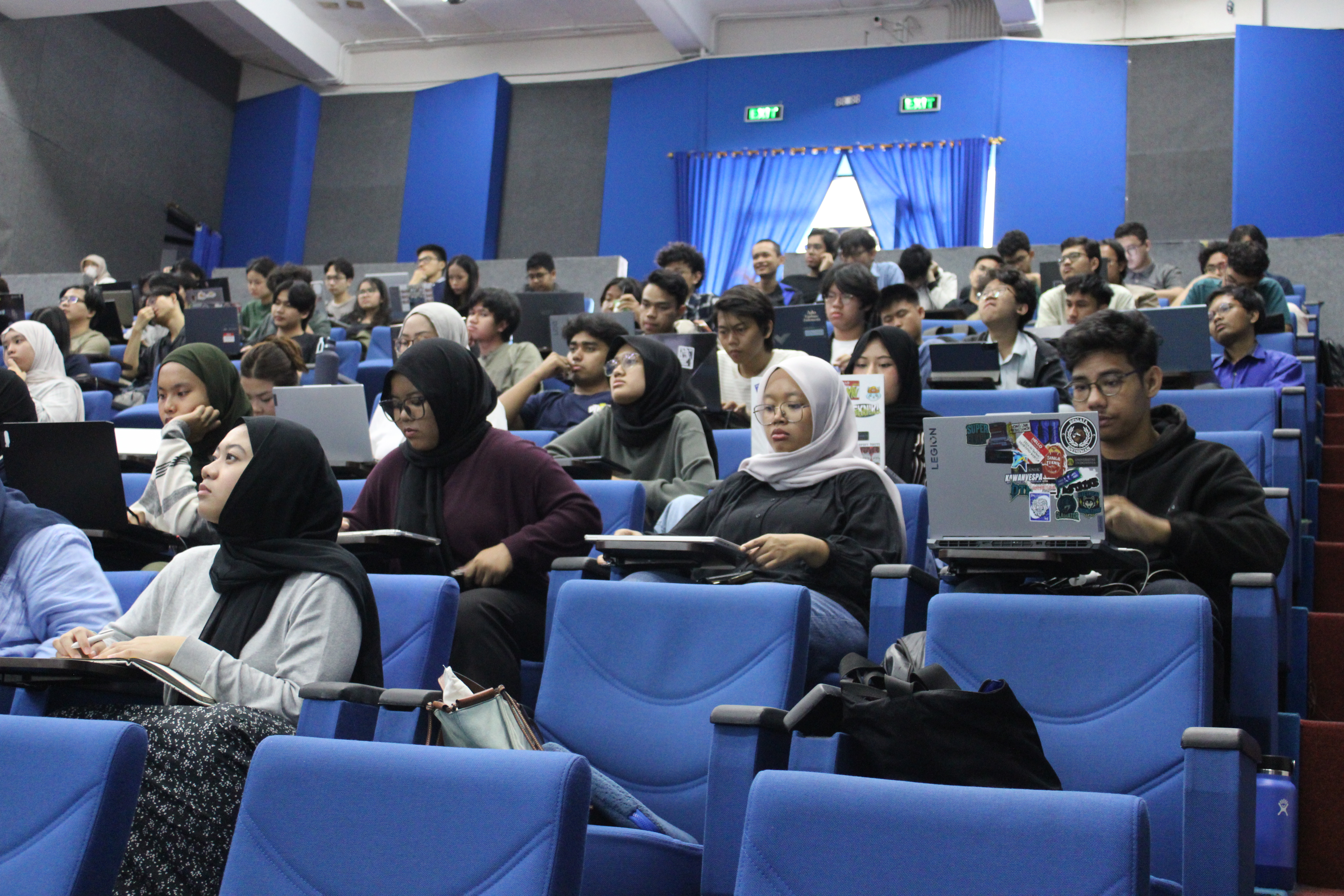The Faculty of Engineering, Universitas Indonesia (FTUI), held a public lecture titled “Understanding the Molecular Mechanism of Progressive Diseases: An Integrative Omics Network Approach” with Dr. Muhammad Arif, Associate Senior Lecturer and DDLS Fellow at the Wallenberg Laboratory, Institute of Medicine, SciLifeLab, University of Gothenburg. The event took place at MRPQ on Thursday (October 30).
In his presentation, Dr. Arif explained how the current paradigm of biomedical research is shifting from hypothesis-driven approaches to data-driven biology. This approach enables researchers to gain a systemic understanding of diseases through large-scale data analysis generated by omics technologies—covering genomics, transcriptomics, proteomics, metabolomics, and metagenomics.
“In the era of data-driven research, we no longer just ask ‘why something happens,’ but we also use big data to discover patterns, predict outcomes, and generate new hypotheses,” said Dr. Arif.
He emphasized the importance of multidisciplinary collaboration among biology, engineering, and computer science to address the complexities of modern diseases such as cancer, heart failure, diabetes, and neurodegenerative disorders. Using systems biology and network analysis, molecular relationships can be mapped to identify central genes, novel biomarkers, and potential therapeutic targets.
In addition, Dr. Arif highlighted the importance of caution in interpreting analytical results. “Correlation does not always mean causation,” he stressed, adding that many diseases are progressive and involve gradual, complex changes within the human biological system.
The lecture also discussed the practical applications of omics analysis, including data quality control, statistical analysis, machine learning, and the interpretation of biological networks using modern algorithms such as Leiden and Infomap.
Dean of the Faculty of Engineering UI, Prof. Kemas Ridwan Kurniawan, S.T., M.Sc., Ph.D., expressed his appreciation for the event. “Dr. Arif’s presentation demonstrates the crucial role of engineering disciplines—particularly biomedical and computational engineering—in advancing health research. FTUI is committed to supporting cross-disciplinary collaborations that integrate technology, data, and biology for sustainable innovation,” said Prof. Kemas.
This public lecture is part of FTUI’s ongoing efforts to bring global insights to its academic community, while encouraging students and young researchers to take an active role in developing data-driven research in Indonesia.
***
Public Communication Office
Faculty of Engineering, Universitas Indonesia





